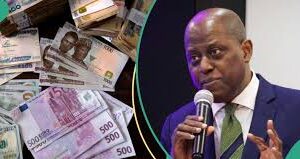At long last the much talked about National Conference is under way and is expected to provide the 492 hand-picked delegates from across the country a rare opportunity for planning a way for salvaging Nigeria—a country bothered by all sorts of political predicaments and socio-economic misfortunes. There is an unusually high expectation for the successful outcome of that conference especially in government circles while in some quarters it was welcomed with extreme discontent and pessimism by those who avidly believe its outcome would not be unalike with previous ill-fated exercises. Still others see it as a potential weapon for causing deep disaffection among the populace already polarized by religious bigotry and ethnocentrism. The reason for that widespread cynicism was the underlying belief about an intimidating motive for calling the conference which might cause a very dangerous situation that may come to light at the climax of the proceedings. It is even feared that such a development could shove the country down a steep slope to definitive destruction.
From the beginning, President Goodluck Jonathan and his partners are not favourably disposed to any type of conference in a dispensation with functional and democratic institutions. Nevertheless, he made a sudden and unexpected turnabout from that position and determinedly defended the need for having one. He was cautioned about its inappropriateness at this material time when general elections are around the corner because a slight mistake arising from organizing its proceedings or processing its outcome could trigger unwholesome consequences capable of derailing electoral process. It was also feared that it may adversely affect the tenure of elected officials and render baton changes impossible. In addition it could trigger an unprecedented constitutional crisis of inconceivable proportion.
The conference has entered its second week and Nigerians eagerly wait to see what President Jonathan would do with its outcome. At first he was not sure of what to do with it until he was advised to consign it to the National Assembly, perhaps to develop it as an addendum to the executive bill he had remitted a long time ago for the purpose of amending the 1999 constitution.
Finally he had devised a splendid but refreshingly new and different idea of conducting a referendum on the conference’s outcome before thrusting it down the throat of the National Assembly to either drastically amend the existing constitution or simply write a brand new one with its contrived conclusions.
Now, the big questionagitating everybody’s mind with regard to that is: how could those recommendations be possible when the 1999 Constitution is unfavourably silent about a referendum and the procedure for discarding and replacing it with a new one? That was not a problem for a ruling party resolute to chart a road map for the country toward ‘miraculous recovery’ from its numerous afflictions.
The PDP is not deficient in influential experts who can arrange and overcome any impossible proposition under the sun. The Senate vice-president, Senator Ike Ekweremadu had long ago flown a kite which President Jonathan now wanted to bring down.
He indicated that his party was pushing for an amendment of section nine of the 1999 constitution to make it possible for the emergence of a brand new constitution since the old constitution only contains provisions for amending it only.
With the amendment for the inclusion of a referendum phrase in the old constitution in the offing it could be possible to submit the outcome of the National Conference to it after its eventual passage at the national and state assemblies.
Certainly that was what must have prompted President Jonathan to urge the National and state assemblies to expedite action on amending the 1999 constitution to permit the inclusion of a provision that will form a legal basis for subjecting the conference’s outcome to a referendum. In the event the referendum outcome is favourable to the ruling PDP it could then be used as an invaluable input for writing a brand new constitution or at most be employed in drastically altering the provisions of the existing constitution.
All these are hypothetical circumstances that can only crystallise with the active involvement of disinclined legislators. It is instructive to note, however, the ruling party had since lost its bearing in the National Assembly and with that, its capability of mustering two-thirds majority in both chambers for its project to sail through. Even in the states where it once had an overwhelming majority in the legislative houses chances are that it may now hardly obtain any appreciable support to warrant its success in that regard.
The way President Jonathan and his party have persisted doggedly to go ahead with the conference despite glaring problems and obvious difficulties is quite disconcerting, and has tended to suggest they are desperate in pursuing an agenda for a radical restructuring of Nigeria to massage the ego of a particular group of people within and outside the country.
The National Conference was ostensibly incorporated to pave way for the emergence of a brand new constitution which may after all compound the problems it would be intended to solve.



